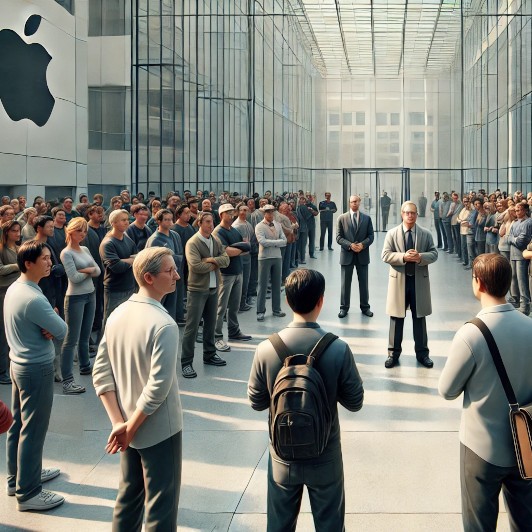The U.S. National Labour Relations Board (NLRB) has accused Apple of restricting employees’ rights to advocate for better conditions by limiting their use of social media and Slack and retaliating against those who raised concerns.
The NLRB’s allegations, filed this month, focus on Apple’s work rules regarding Slack and social media use. Apple, which introduced Slack to its employees several years ago, saw the platform grow as a key tool for workers to discuss workplace concerns, particularly during the COVID-19 pandemic. However, the NLRB says that Apple has since imposed restrictions on how workers can use the platform, undermining their ability to freely advocate for better working conditions.
The NLRB claims that Apple maintained illegal policies, including restricting the creation of new Slack channels without management’s approval and requiring employees to report workplace concerns directly to a manager or designated support team. The complaint also includes accusations of Apple sacking an employee for workplace activism and pressuring another to delete a social media post, actions which the NLRB claims violate labour laws.
The complaint is part of a broader pattern, with Apple facing a similar NLRB complaint just a week earlier, accusing it of enforcing overly broad confidentiality, nondisclosure, and noncompete agreements that limited workers’ rights. In both cases, Apple has denied the accusations. An Apple spokesperson is reported as saying that Apple is committed to providing “a positive and inclusive workplace”, takes employee concerns seriously, and strongly disagrees with the NLRB’s claims.
The current case stems from a 2021 complaint filed by former Apple employee Janneke Parrish, who claims she was sacked in retaliation for her role in workplace activism. Parrish had used Slack and social media to organise efforts around remote work, pay equity, and discrimination at Apple. Parrish’s lawyer argues that Apple engaged in “extensive violations” of workers’ rights, asserting that employees were punished for raising critical workplace issues, particularly around gender and racial discrimination.
If Apple and the NLRB can’t reach a settlement on the matter, it looks likely that the case will go to a hearing before an administrative judge in February. The outcome of the hearing could set a significant precedent for the rights of employees in the tech industry, with broader implications for how companies handle worker communication and activism.

